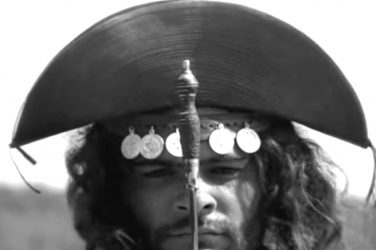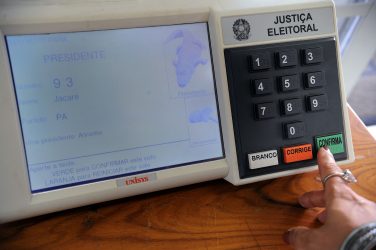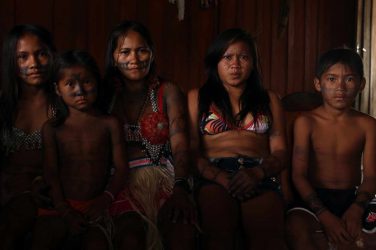
“We believe that the Lula administration is in a good position
to avoid what has been done by previous federal
administrations, which failed to define a concrete policy
towards indigenous peoples and allowed acts of
aggression and lack of respect against them.”
By
Delegates from Cimi (Conselho Indigenista Missionary—Indianist Missionary Council), an
organization linked to the National Conference of Bishops of Brazil (CNBB) met recently with the transition team of
President-elect Luiz Inácio Lula da Silva. The meeting took place on November 12, in Brasília, where the head office of
the transition team was set up. Cimi was represented by secretaries Egon Heck and Sebastião Moreira and by its
legal advisor, Paulo Machado Guimarães.
The document highlights proposals for immediate actions to be taken by the Lula administration and
underlines expectations with regard to the definition of a medium- and long-term policy, such as: completion of procedures
for demarcating all indigenous lands; removal of invaders from all indigenous lands that have been encroached
upon; adoption of programs specifically based on the reality of reemerged indigenous peoples and of “isolated /
free” indigenous peoples; and the creation of a new model to be adopted by the Public Administration in relation
to indigenous people, one that truly takes into account their social and cultural reality.
During the meeting, Márcio Meira and Gilney Viana, members of President-elect Lula´s transition team, said
that they will do all within their power to bring the claims of the country’s indigenous peoples to the attention of the
new federal administration. “We are limited, we have not been sworn in yet and we have no authority. But we have
the authority to prevent problems from growing,” they said.
In addition to expressing joy and hope over the election of a Government that is truly committed to changes
that the large majority of the Brazilian people and indigenous peoples have been yearning for for a long time, Cimi
would like to express its desire to contribute toward furthering this historical democratic process by suggesting the
adoption of some urgent actions to the new federal administration:
· The revoking of Decree n. 1,775/96, which introduced the adversary system in the process of
demarcating indigenous lands and encouraged violence, invasions, and pressures of all kinds against the recognition of those
lands; and the adoption, instead, of the demarcation procedure approved by indigenous peoples in their Assembly held
in April 2001, which is included in the proposal for a new Statute of Indigenous People proposed to the Chamber
of Representatives;
· The revoking of the recent Decree 4,412/02, which provides for the presence of the Armed Forces and of
the Federal Police in indigenous lands. This decree is clearly unconstitutional, exposes indigenous peoples to the risk
of becoming victims of serious violations of human rights, and hinders a positive dialogue on an important issue for
the country, namely, the role of the Armed Forces;
· Guarantee of full possession, by indigenous communities, of lands traditionally occupied by them, as some
of
these lands have been involved in serious and protracted conflicts, such
as the following ones: Raposa/Serra do Sol (state of Rondônia); Caramuru
– Catarina Paraguay (state of Bahia); Pataxó of
the Pascoal Mount region (state of Bahia); Cerro Marangatu (state of
Mato Grosso do Sul); Guarani of the Araça’í (state
of Santa Catarina); Xukuru (state of Pernambuco), Guajá (state of
Maranhão) and Roosevelt (states of Rondônia and
Mato Grosso);
· Actions to persuade the National Congress
to approve the Statute of Indigenous Peoples in
accordance with a proposal sent by indigenous people
to the president of the Chamber of Representatives
in April 2001, which was supported by over one
million signatures;
· Appropriation, in the Budget of the Union,
of sufficient funds to indemnify occupants of
indigenous lands for improvements made therein in
good faith, for health care, for education and
self-sustainability, and for the demarcation and
protection of indigenous lands and of the indigenous
heritage;
· Immediate legal-administrative and
judicial protection to indigenous communities where
there are conflicts over the possession of
indigenous lands.
“This is our initial contribution, because we
believe that the Lula administration is in a good
position to avoid what has been done by previous
federal administrations, which failed to define a
policy with concrete actions in relation to
indigenous peoples from the outset and, in doing so,
allowed acts of aggression, violence, and lack of
respect for the rights of indigenous people to
continue,” stressed Egon Heck, Cimi’s Executive
Secretary.
This article was distributed by Sejup, which can be visited
at www.oneworld.net/sejup
Send
your
comments to
Brazzil












